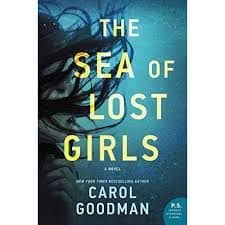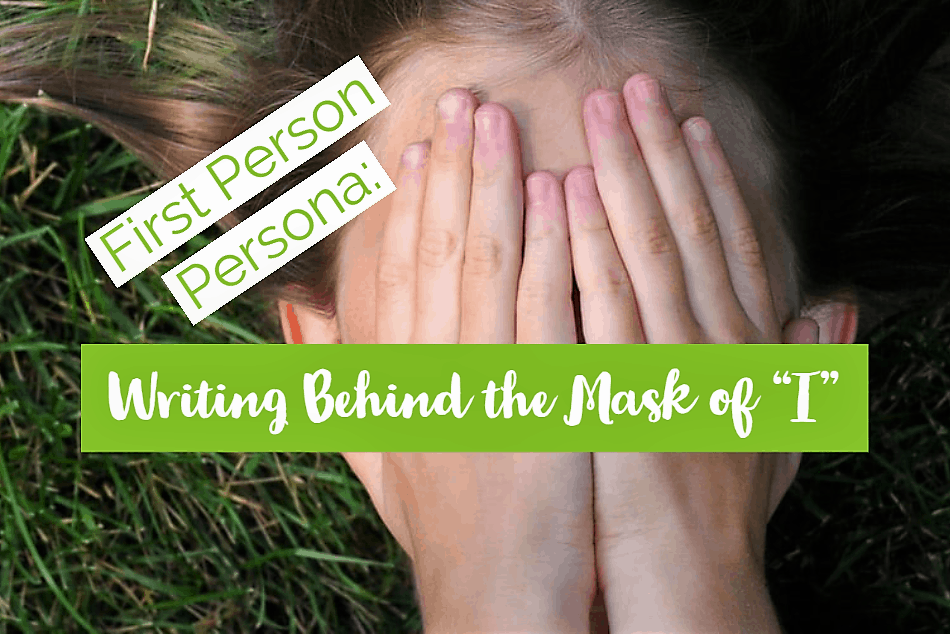One of the problems my writing students often struggle with is using autobiographical material while writing. It’s the most accessible material for them to write about, but it can also make them feel exposed or limited by the confines of what actually happened.
So I bring in Persona Poems. In a persona poem, an author writes from the identity of someone else.
We read “My Last Duchess” by Robert Browning, which many of them remember from high school, and then, before they fall asleep, I have them listen to Mick Jagger’s “Sympathy for the Devil.”
I tell them that “persona” means mask and ask them what “masks” they wear.
That gets them talking about their “school” persona versus their “home” persona, about code-switching and imposter syndrome. They get it.
When I ask why a writer might choose to write behind a mask, my students’ answers usually come down to two main ideas: 1) Because their lives aren’t interesting enough to write about and 2) to avoid exposing themselves and their families.
I find these two ideas wonderfully contradictory. On the one hand, my students are saying: my life is so boring that if I wrote about it you’d fall asleep; on the other: If I write about my true self, you’ll recognize me for the freak of nature that I am and run screaming. I think both these motives are simultaneously true. In fact, these are exactly what make up my own personal modus operandi for how I use the first person.
I almost always write in the first person. And that first person narrator is often someone not entirely unlike myself: a woman who likes books and has a job somehow related to books or art (teacher, writer, artist … I’ve gone so far as metal artist and stained glass restorer). My initial inspiration is usually something that is bothering or scaring me. You know, the kind of thing that wakes you up at 4 a.m. and won’t let you go back to sleep. That’s when I start making up a story that’s even worse than what’s bothering me.
Let me illustrate by exposing myself.
My most recent novel, The Sea of Lost Girls, began when I couldn’t sleep because I was worrying about whether my twenty-something-year-old daughter had made it home on the subway from her late-night waitressing job. The first thing I did was check the Find My Phone app (don’t judge me).
The second thing I did was think up a story about a woman who tracks her teenaged son after he calls her in the middle of the night. See, she has a son, not a daughter, so she’s not me. Her kid’s troubled. Why? I began to wonder. What happened to him? Why is he so angry? Why doesn’t my narrator, Tess, just take the poor kid to therapy … oh, what if there’s a secret she’s hiding that would put him in danger if it came out in therapy?
Before long I had a story about a mother who’s so devoted to keeping her son safe that she risks hurting him to do so. Tess’s story is not my own, but by inhabiting her consciousness, by writing her in the first person, I felt the same fear and shame that she did but was able to shape it into a story that has a beginning, middle, and end.
I’ve reenacted my own drama in Kabuki masks, and suddenly I see it more clearly. I can posit a solution of sorts, or at least an ending, while of course our own dramas are ongoing and never ending. (I’m not ever going to stop worrying about my daughter getting home safely but I hardly ever track her phone anymore.)
My students bring in persona poems in which they imitate famous rock stars, their own parents, and inanimate objects. They seem to have fun. I don’t know if it will lead them to speak from behind the first person mask, but I hope it will free them up a little and give them options. For me, I’m grateful that I’ve found a way of cajoling those four a.m. demons by putting on a little show.
What challenges have you faced when writing from a first person POV? Tell us about it on Facebook.

 Carol Goodman is the author of twenty novels, including The Lake of Dead Languages and The Seduction of Water, which won the 2003 Hammett Prize, and, under the pseudonym Juliet Dark, The Demon Lover, which Booklist named a top ten science fiction/fantasy book for 2012. Her YA novel, Blythewood, was named a best young adult novel by the American Library Association. Her 2017 suspense thriller The Widow’s House won the Mary Higgins Clark Award. Her books have been translated into sixteen languages. She lives in the Hudson Valley with her family, and teaches writing and literature at The New School and SUNY New Paltz.
Carol Goodman is the author of twenty novels, including The Lake of Dead Languages and The Seduction of Water, which won the 2003 Hammett Prize, and, under the pseudonym Juliet Dark, The Demon Lover, which Booklist named a top ten science fiction/fantasy book for 2012. Her YA novel, Blythewood, was named a best young adult novel by the American Library Association. Her 2017 suspense thriller The Widow’s House won the Mary Higgins Clark Award. Her books have been translated into sixteen languages. She lives in the Hudson Valley with her family, and teaches writing and literature at The New School and SUNY New Paltz.





